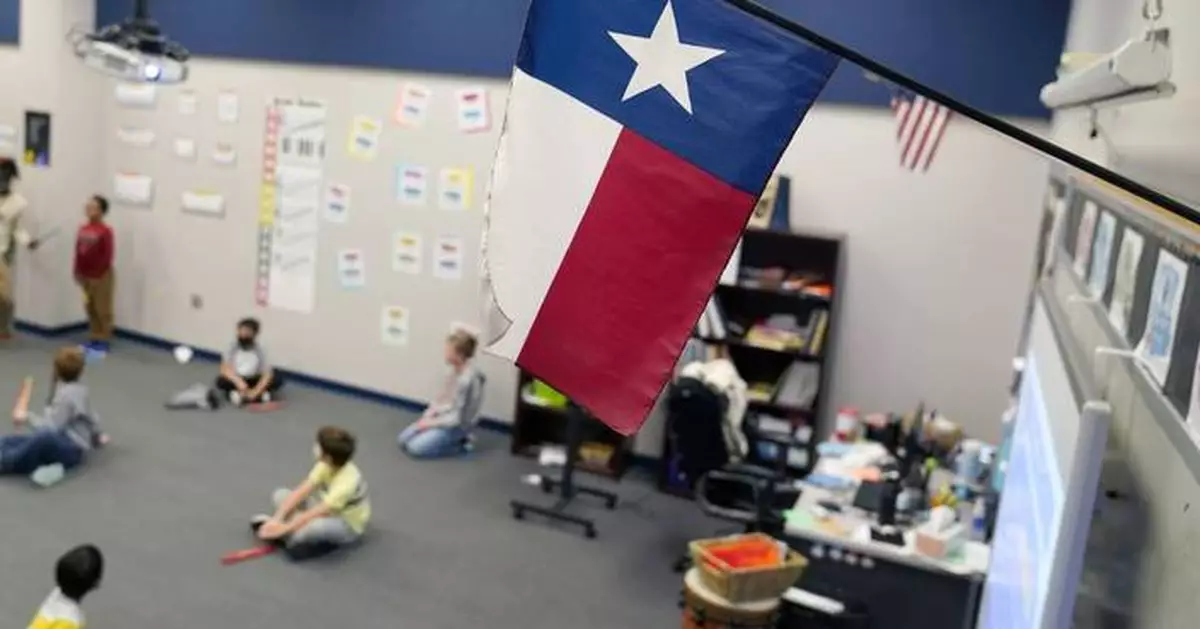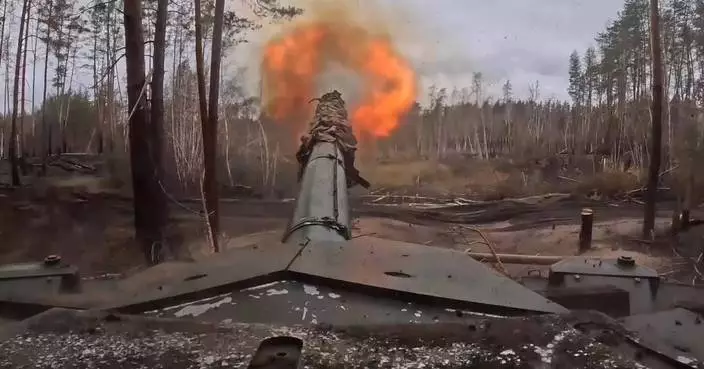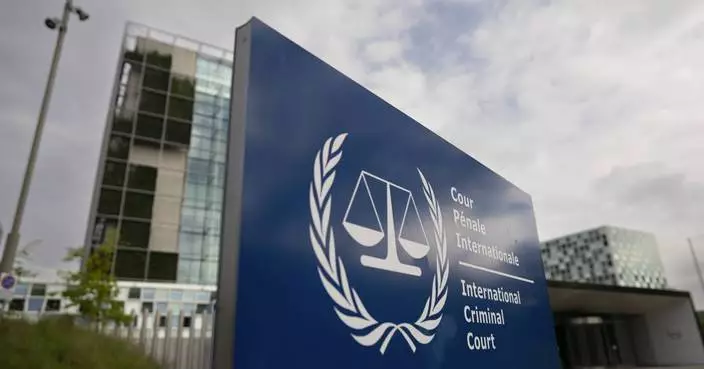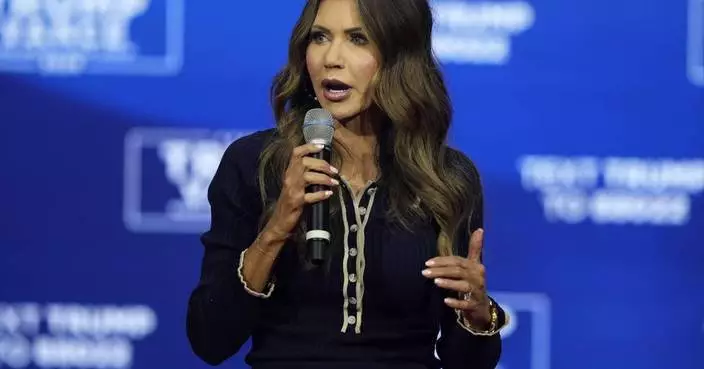AUSTIN, Texas (AP) — Texas would allow Bible-infused lessons in elementary schools under changes that were set for a final vote Friday and could test boundaries between religion and public education in the U.S.
The proposed curriculum narrowly cleared a preliminary vote this week at the Texas State Board of Education, whose elected members heard hours of sometimes impassioned pleas from both supporters and critics over the material that schools could begin using next year.
If adopted, the new Texas curriculum would follow Republican-led efforts in neighboring states to give religion more of a presence in public schools. In Oklahoma, the state's education chief has ordered a copy of the Bible in every classroom, while Louisiana wants to make all of the state’s public school classrooms post the Ten Commandments beginning next year.
In Texas, it would be optional for schools to adopt the materials, but they’d receive additional funding if they do so.
If the board advances the curriculum, Texas would be the first state to introduce Bible lessons in schools in this manner, according to Matthew Patrick Shaw, an assistant professor of public policy and education at Vanderbilt University.
The Texas Education Agency, which oversees public education for more than 5 million students statewide, created its own instruction materials after a law passed in 2023 by the GOP-controlled Legislature required the agency to do so. The lesson plans were publicly released this spring.
The material draws on lessons from Christianity more than any other religion in the proposed reading and language arts modules for kindergarten through fifth grade, which critics say would alienate students from different faith backgrounds and potentially violate the First Amendment.
“This curriculum is not age-appropriate or subject matter appropriate in the way that it presents these Bible stories,” said Amanda Tyler, executive director of the Baptist Joint Committee for Religious Liberty.
Children who would read the material, she said, “are simply too young to tell the difference between what is a faith claim and what is a matter of fact.”
More than 100 people testified at a board meeting this week that rung with emotion from parents, teachers and advocates. Supporters of the curriculum argued that the Bible is a core feature of American history and teaching it will enrich students’ learning.
“It is said that there are close to 300 common-day phrases that actually come from the Bible,” said Mary Castle, director of government relations for Texas Values, a right-leaning advocacy group. "So students will benefit from being able to understand a lot of these references that are in literature and have a way to be able to comprehend them.”
The 15-member board consists of 11 Republicans and four Democrats. It signaled support for the materials in a 8-7 preliminary vote on Wednesday.
One of the board members is a Republican who was appointed to the board just weeks ago by Republican Gov. Greg Abbott to temporarily fill a vacant seat. Days after that appointment, a Democrat who ran unopposed was elected to fill that same board seat starting next year.
Abbott has publicly supported the instruction materials.
Whether the lesson plans will be considered constitutional is up in the air if the curriculum passes, Shaw said.
“The question is how is Texas going to frame what is done here to avoid the establishment question or tackle it head-on,” he said.
Texas' plans to implement Biblical teachings in public school lesson plans is the latest effort by Republican-controlled states to bring religion into the classroom.
In Louisiana, a law to place the Ten Commandments in all public classrooms was blocked by a federal judge earlier this month. Republican Gov. Jeff Landry signed the bill into law in June, prompting a group of Louisiana public school parents of different faiths to sue.
In Oklahoma, the state's top education official has tried to incorporate the Bible into lesson plans for children in fifth through 12th grades. A group of teachers and parents recently filed a lawsuit to stop the Republican state superintendent's plan and his efforts to spend $3 million to purchase Bibles for public schools.
Lathan is a corps member for the Associated Press/Report for America Statehouse News Initiative. Report for America is a nonprofit national service program that places journalists in local newsrooms to report on undercovered issues.
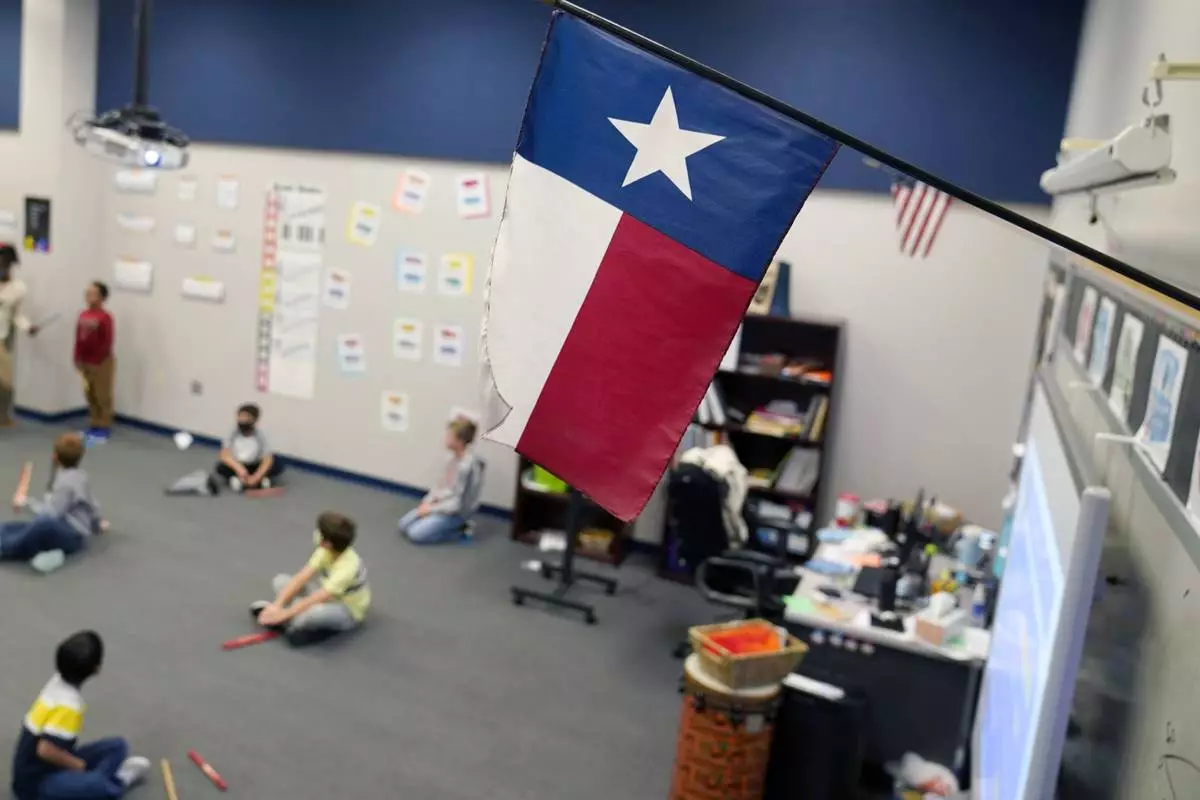
FILE - A Texas flag is displayed in an elementary school in Murphy, Texas, Thursday, Dec. 3, 2020. (AP Photo/LM Otero, File)
BAKU, Azerbaijan (AP) — A new draft of a deal on cash to curb and adapt to climate change released Friday afternoon at the United Nations climate summit pledged $250 billion by 2035 from wealthy countries to poorer ones. The amount pleases the countries who will be paying, but not those on the receiving end.
The amount is more than double the previous goal of $100 billion a year set 15 years ago, but it's less than a quarter of the number requested by developing nations struck hardest by extreme weather. But rich nations say the number is about the limit of what they can do, say it's realistic and a stretch for democracies back home to stomach.
It struck a sour note for developing countries, which see conferences like this one as their biggest hope to pressure rich nations because they can't attend meetings of the world's biggest economies.
"Our expectations were low, but this is a slap in the face,” said Mohamed Adow, from Power Shift Africa. “No developing country will fall for this. They have angered and offended the developing world.”
The proposal came down from the top: the presidency of the climate talks — called COP29 — in Baku, Azerbaijan.
COP29 lead negotiator Yalchin Rafiyev, Azerbaijan's deputy foreign minister, said the presidency hopes to push countries to go higher than $250 billion, saying “it doesn't correspond to the our fair and ambitious goal. But we will continue to engage with the parties.”
This proposal, which is friendly to the viewpoint of Saudi Arabia, is not a take-it-or-leave-it option, but likely only the first of two or even three proposals, said Climate Analytics CEO Bill Hare, a veteran negotiator.
“We’re in for a long night and maybe two nights before we actually reach agreement on this,” Hare said.
Just like last year's initial proposal, which was soundly rejected, this plan is “empty” on what climate analysts call “mitigation” or efforts to reduce emissions from or completely get off coal, oil and natural gas, Hare said.
The frustration and disappointment at the proposed $250 billion figure was palpable on Friday afternoon.
Tina Stege, Marshall Islands' climate envoy, called the drafts “shameful.”
“It is incomprehensible that ... (we) receive only sympathy and no real action from wealthy nations,” she said.
“It is a disgrace that despite full awareness of the devastating climate crises afflicting developing nations and the staggering costs of climate action — amounting to trillions — developed nations have only proposed a meagre $250 billion per year," said Harjeet Singh of the Fossil Fuel Non-Proliferation Treaty.
That amount, which goes through the year 2035, is basically the old $100 billion year goal with 6% annual inflation, said Vaibhav Chaturvedi a climate policy analyst with New Delhi-based Council on Energy, Environment and Water.
Experts put the need at $1.3 trillion for developing countries to cover damages resulting from extreme weather, help those nations adapt to a warming planet and wean themselves from fossil fuels, with more generated by each country internally.
The amount in any deal reached at COP negotiations — often considered a “core” — will then be mobilized or leveraged for greater climate spending. But much of that means loans for countries drowning in debt.
Singh said the proposed sum — which includes loans and lacks a commitment to grant-based finance — adds “insult to injury.”
Iskander Erzini Vernoit, director of Moroccan climate think-tank Imal Initiative for Climate and Development, said “the EU and the U.S. and other developed countries cannot claim to be committed to the Paris Agreement while putting forward such amounts."
Countries reached the Paris Agreement in 2015, pledging to keep warming below 1.5 degrees Celsius (2.7 Fahrenheit) since pre-industrial times. The world is now at 1.3 degrees Celsius (2.3 degrees Fahrenheit), according to the U.N.
Switzerland environment minister Albert Rösti said it was important that the climate finance number is realistic.
“I think a deal with a high number that will never be realistic, that will never be paid… will be much worse than no deal,” he said.
The United States' delegation offered a similar warning.
“It has been a significant lift over the past decade to meet the prior, smaller goal" of $100 billion, said a senior U.S. official. “$250 billion will require even more ambition and extraordinary reach" and will need to be supported by private finance, multilateral development banks — which are large international banks funded by taxpayer dollars — and other sources of finance, the official said.
A lack of a bigger number from European nations and the U.S. means that the “deal is clearly moving toward the direction of China playing a more prominent role in helping other global south countries,” said Li Shou of the Asia Society Policy Institute.
German delegation sources said it will be important to be in touch with China and other industrialized nations as negotiations press on into the evening.
“We think this is at least a text we can work with. Now we have a map on the way forward instead of nowhere where we don’t know where we are going," said German climate envoy Jennifer Morgan.
Analysts said the proposed deal is the start of what could likely be more money.
“This can be a good down payment that will allow for further climate action in developing countries,” said Melanie Robinson, global climate program director at the World Resources Institute. “But there is scope for this to go above $250 billion.”
Rob Moore, associate director at E3G, said that whatever figure is agreed “will need to be the start and not the end" of climate cash promises.
"If developed countries can go further they need to say so fast to make sure we get a deal at COP29,” he said.
Associated Press journalists Ahmed Hatem, Olivia Zhang and Aleksandar Furtula contributed to this report.
The Associated Press’ climate and environmental coverage receives financial support from multiple private foundations. AP is solely responsible for all content. Find AP’s standards for working with philanthropies, a list of supporters and funded coverage areas at AP.org.
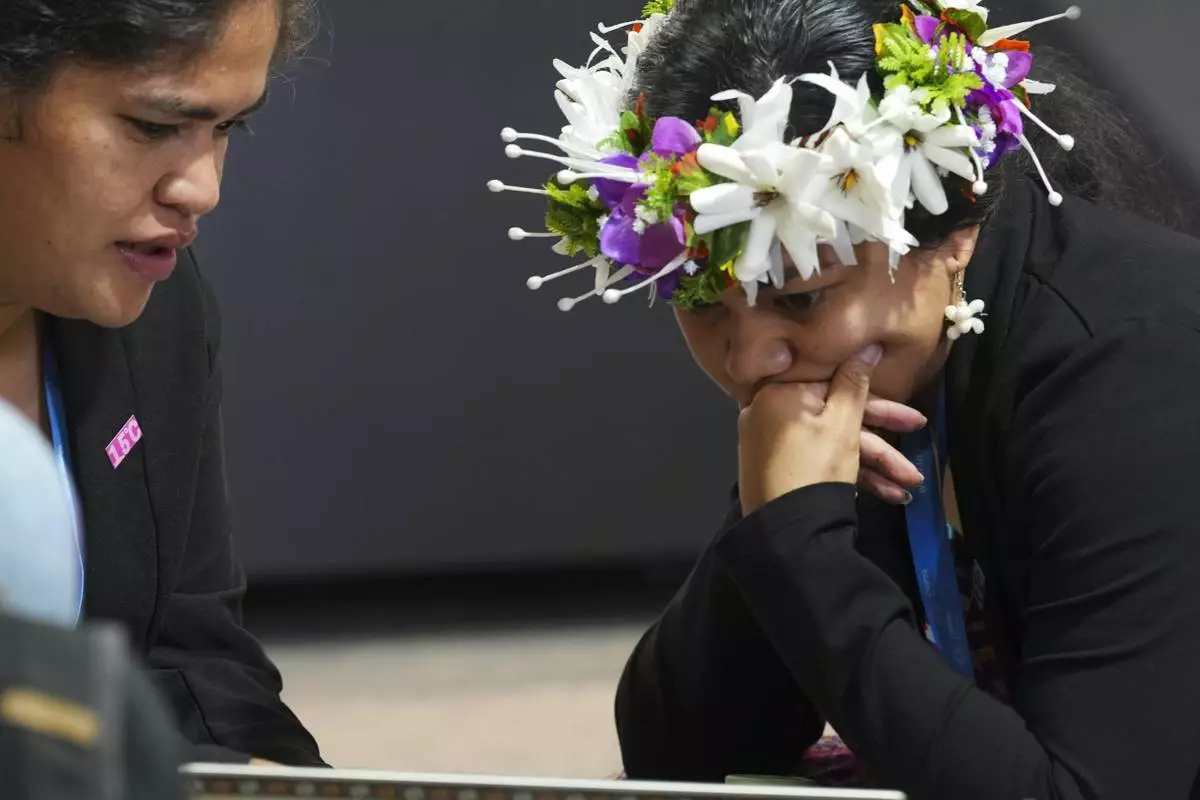
Demi Afasene, of Tuvalu, right, looks through a draft of a proposed deal for curbing climate change at the COP29 U.N. Climate Summit, Friday, Nov. 22, 2024, in Baku, Azerbaijan. (AP Photo/Peter Dejong)
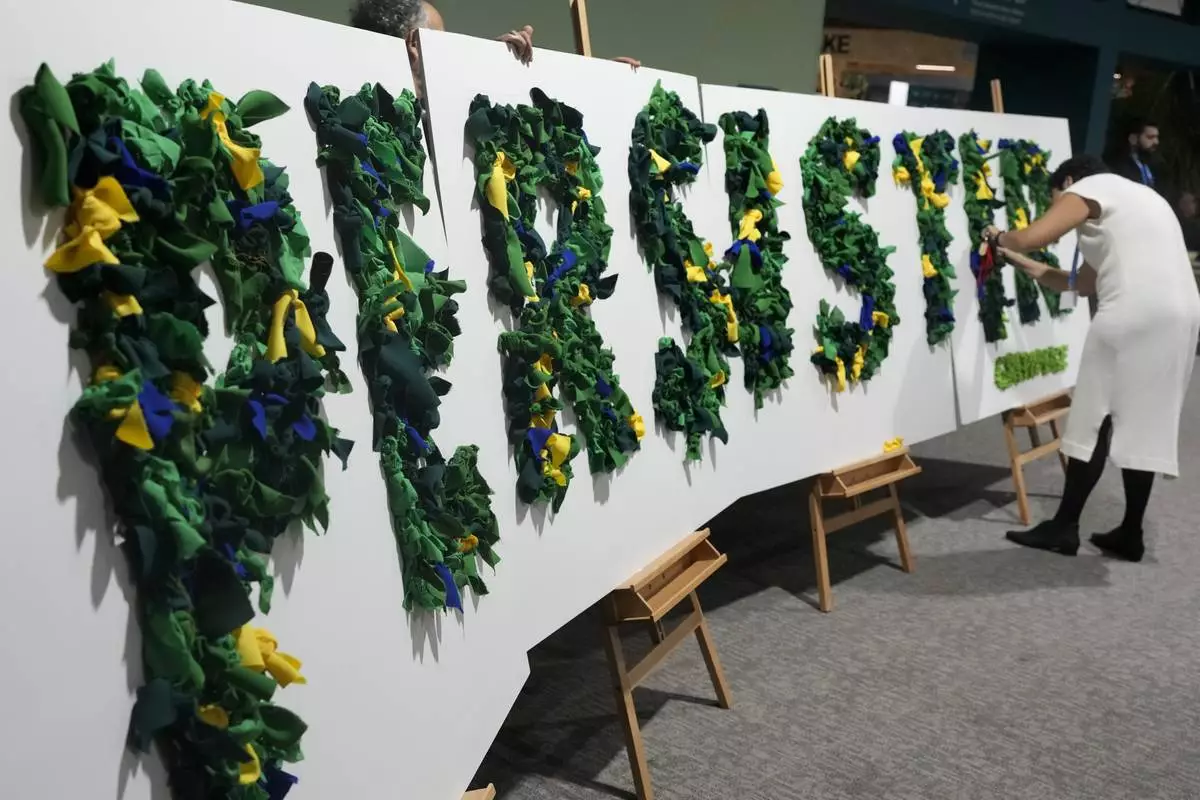
An activist works on a display that reads in Portuguese persistir, that translates to persist, during the COP29 U.N. Climate SuRafiq Maqbool Nov. 22, 2024, in Baku, Azerbaijan. (AP Photo/Rafiq Maqbool)
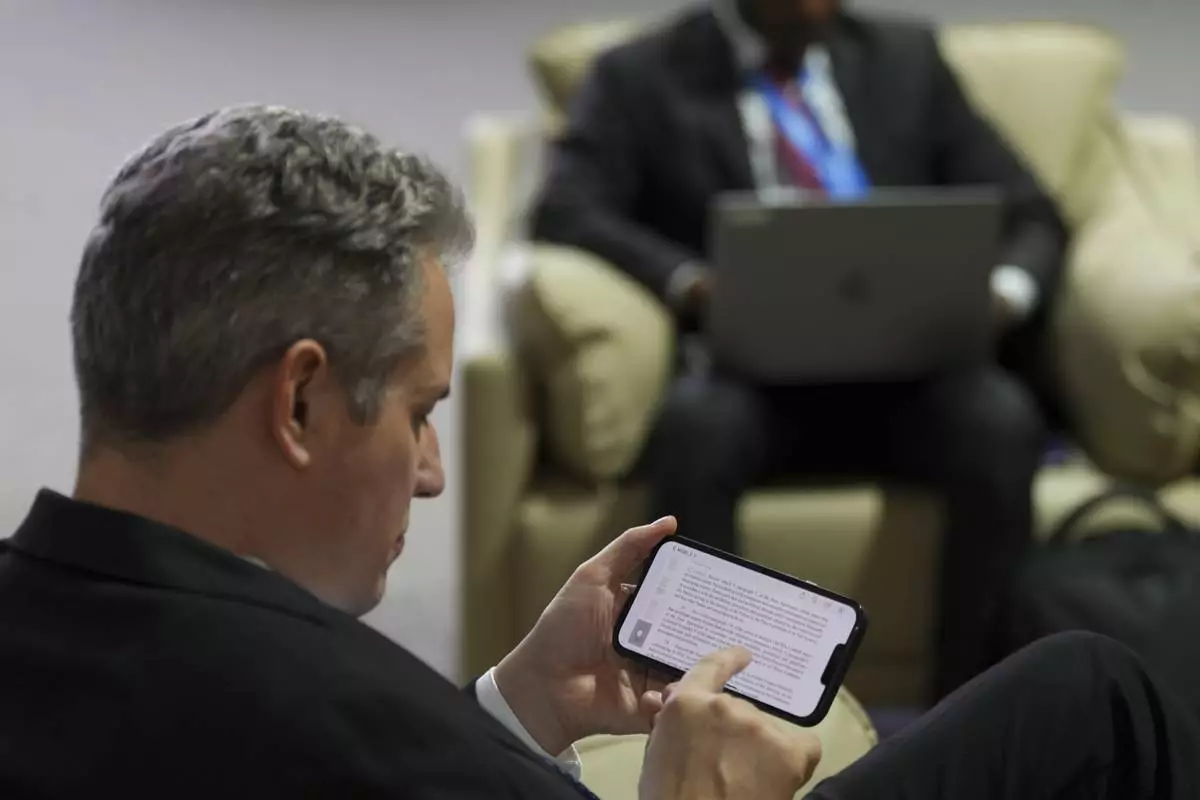
A person reads a draft of a proposed deal for curbing climate change during the COP29 U.N. Climate Summit, Friday, Nov. 22, 2024, in Baku, Azerbaijan. (AP Photo/Peter Dejong)
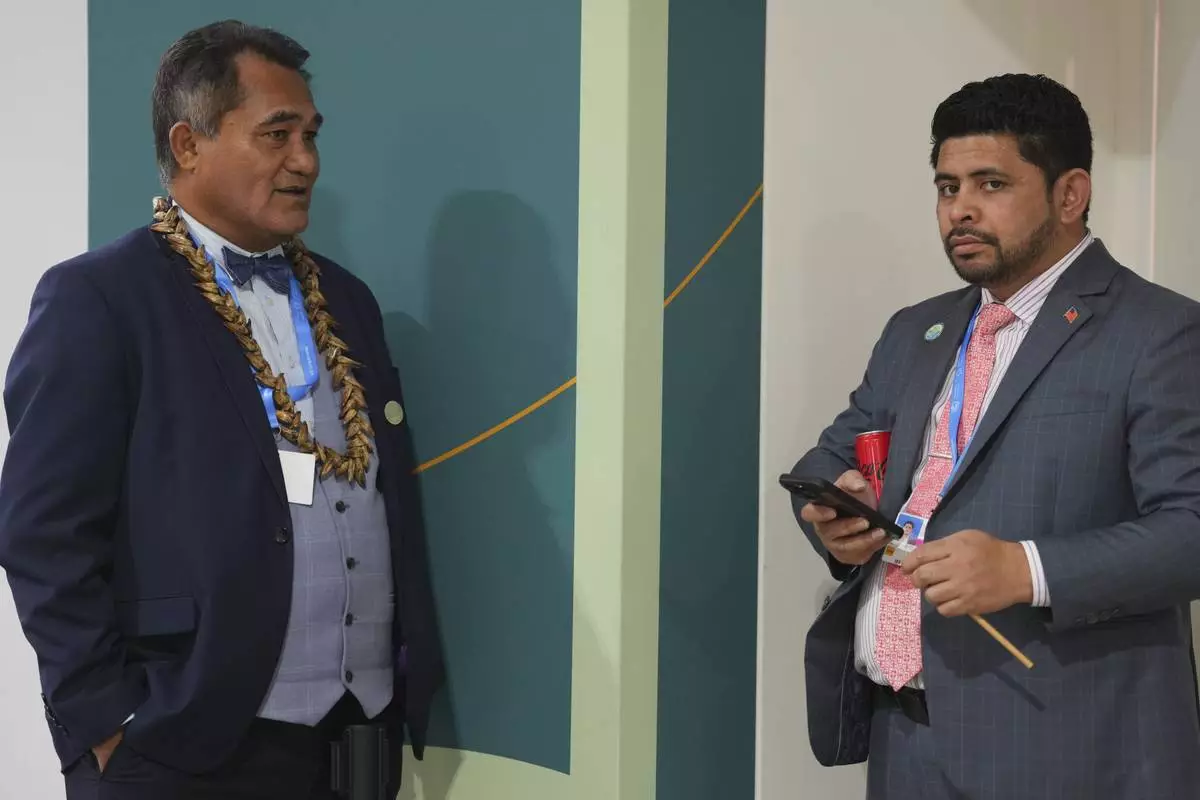
Toeolesulusulu Cedric Schuster, Samoa environment minister, waits outside a room at the COP29 U.N. Climate Summit, Friday, Nov. 22, 2024, in Baku, Azerbaijan. (AP Photo/Peter Dejong)
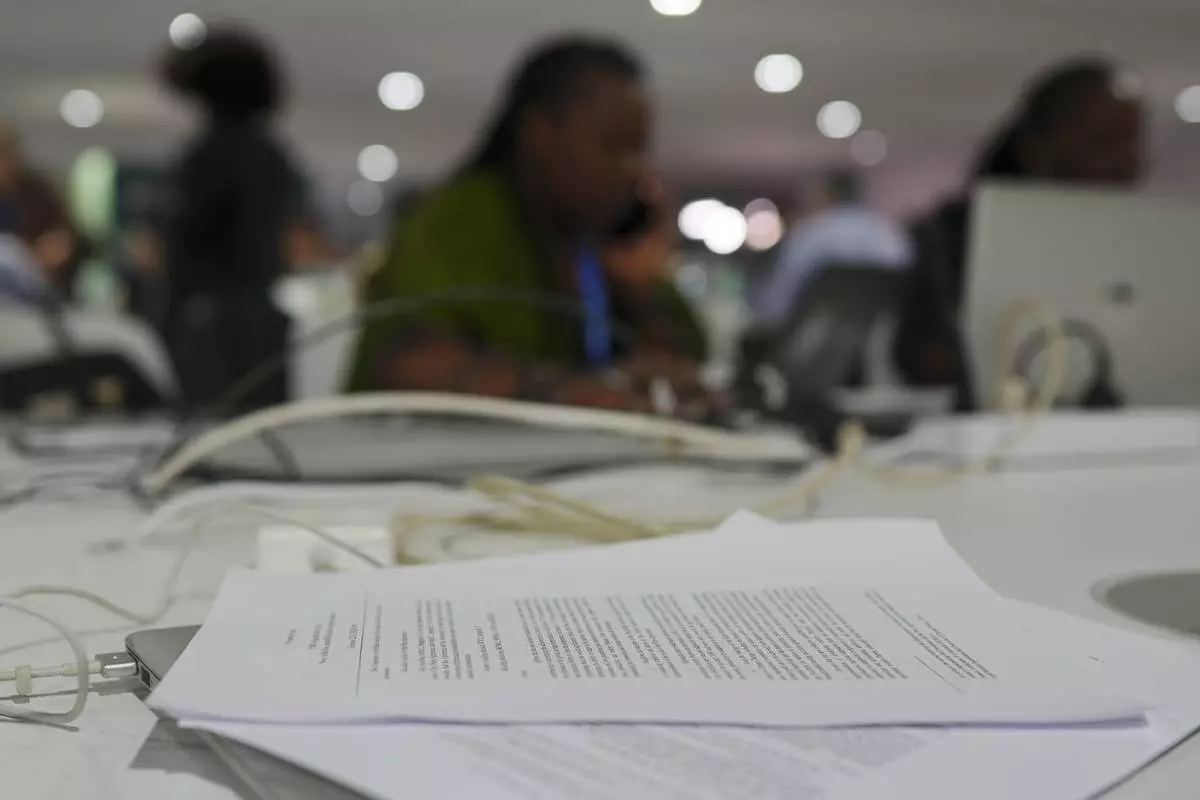
A draft of a proposed deal for curbing climate change sits on a table at the COP29 U.N. Climate Summit, Friday, Nov. 22, 2024, in Baku, Azerbaijan. (AP Photo/Peter Dejong)
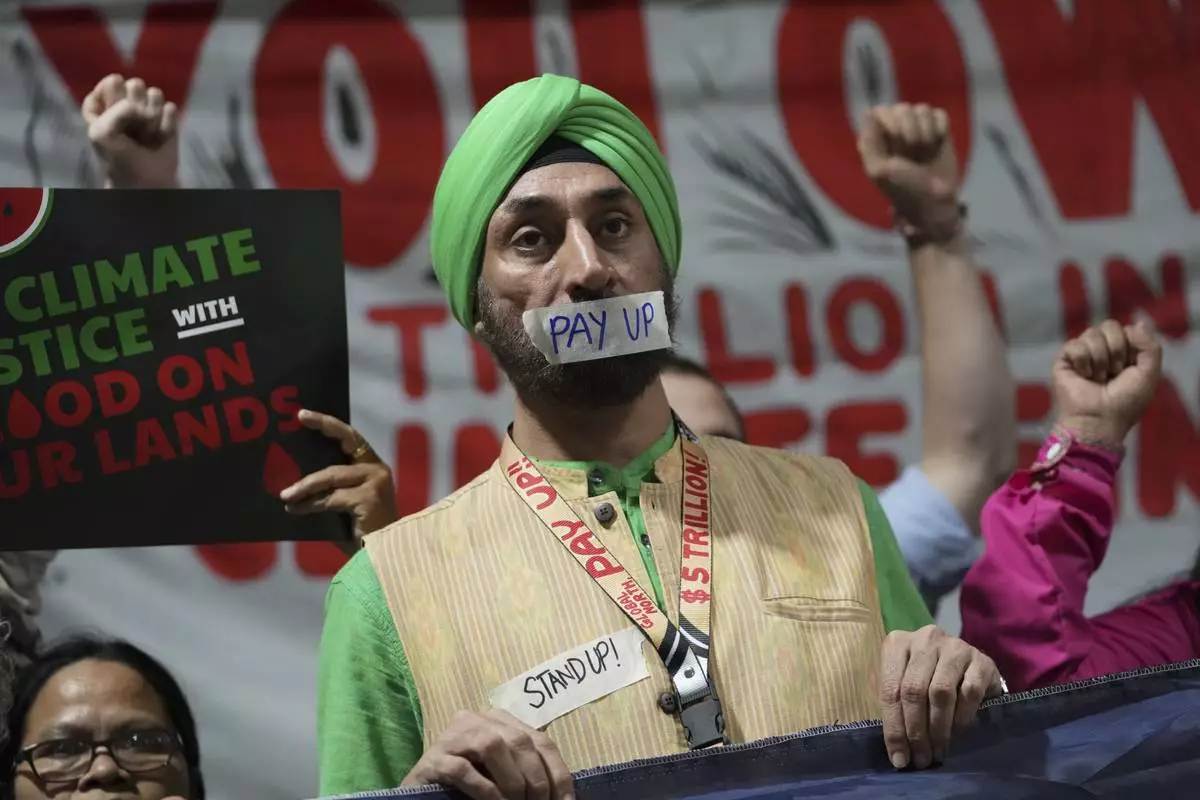
Activists participate in a demonstration for climate finance at the COP29 U.N. Climate Summit, Friday, Nov. 22, 2024, in Baku, Azerbaijan. (AP Photo/Sergei Grits)
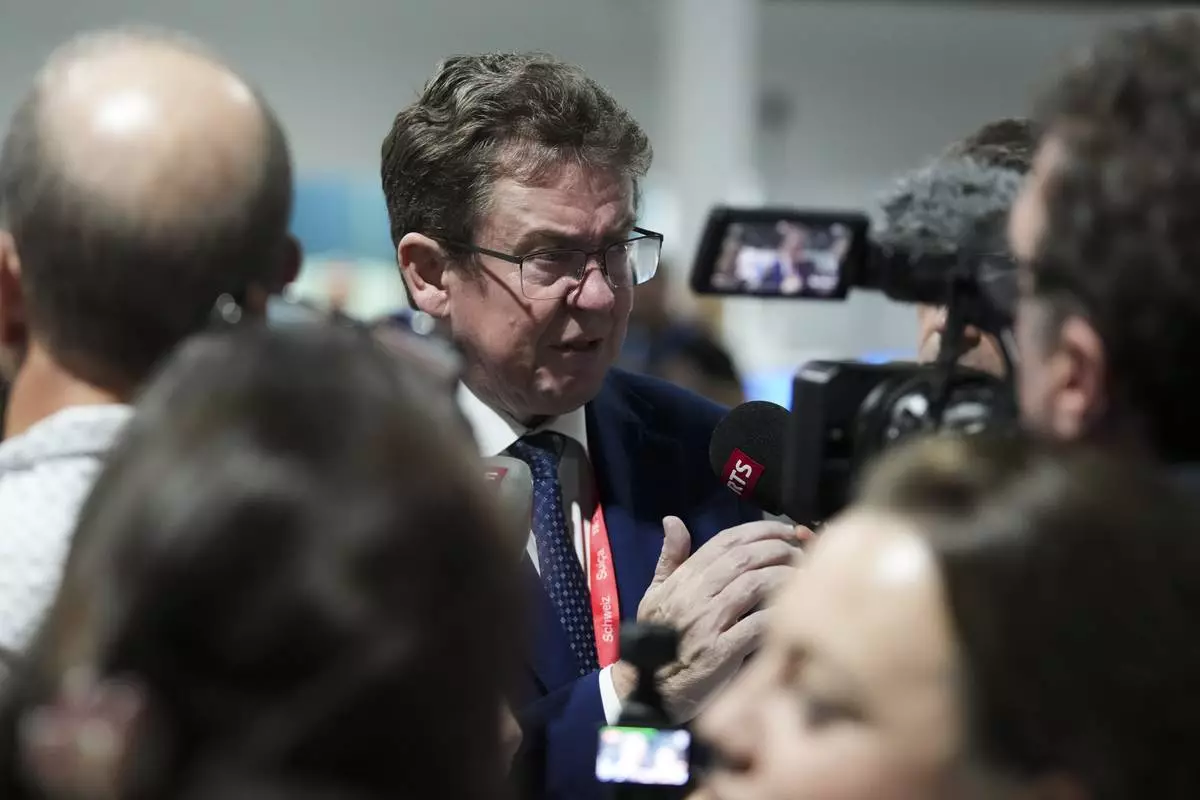
Albert Rosti, of Switzerland, speaks to members of the media at the COP29 U.N. Climate Summit, Friday, Nov. 22, 2024, in Baku, Azerbaijan. (AP Photo/Sergei Grits)
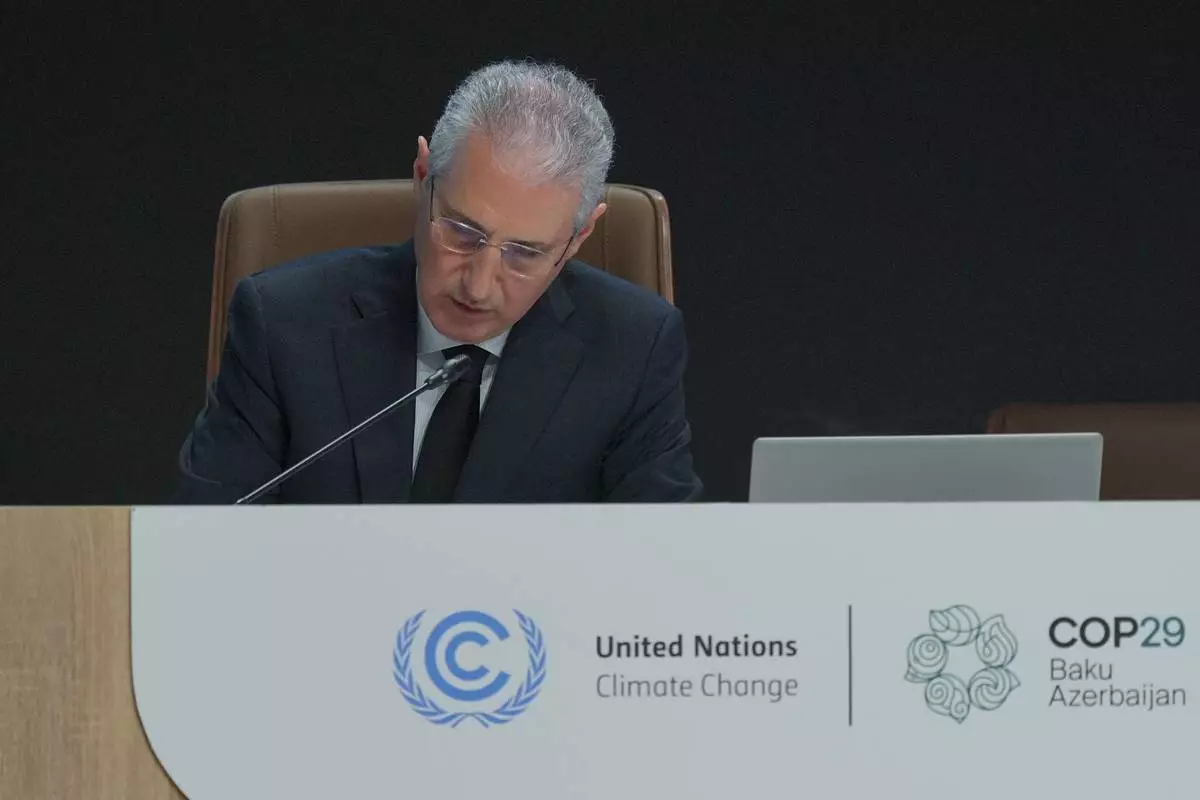
Mukhtar Babayev, COP29 President, rehearses in the plenary at the COP29 U.N. Climate Summit, Friday, Nov. 22, 2024, in Baku, Azerbaijan. (AP Photo/Peter Dejong)
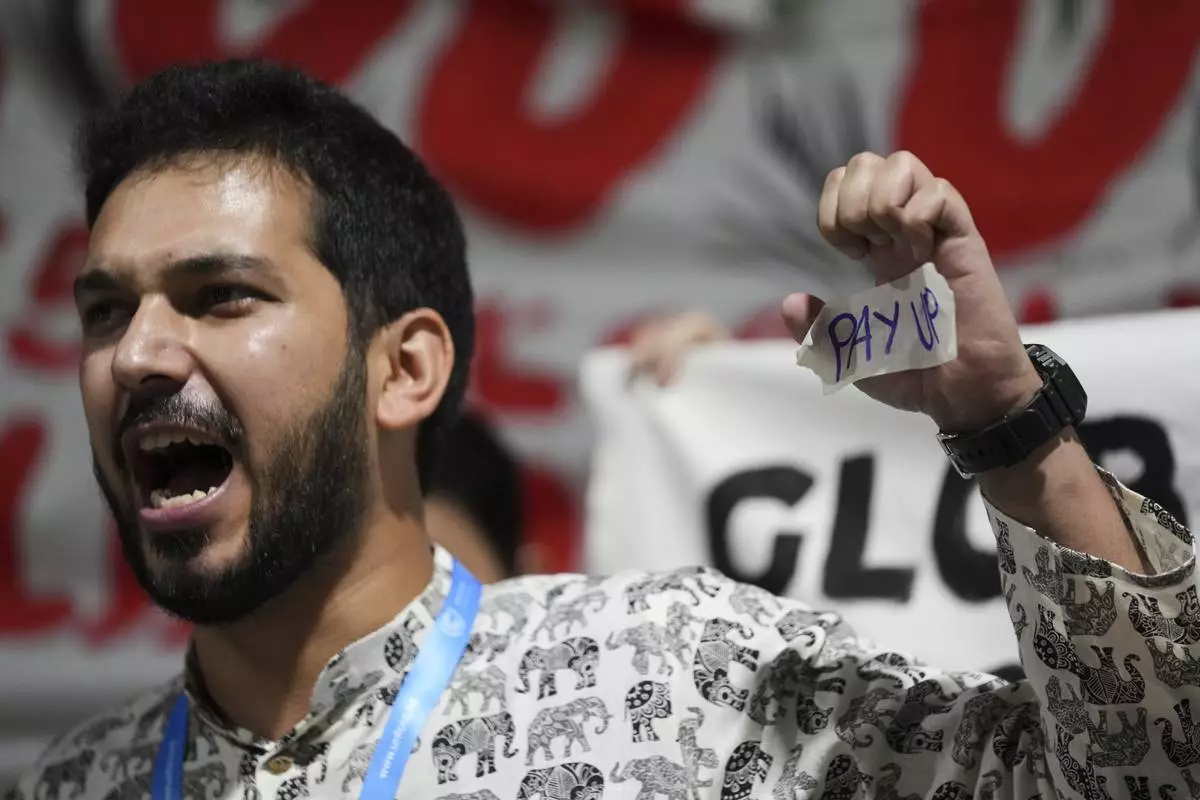
An activist displays "pay up" on his hand during a demonstration for climate finance at the COP29 U.N. Climate Summit, Friday, Nov. 22, 2024, in Baku, Azerbaijan. (AP Photo/Sergei Grits)
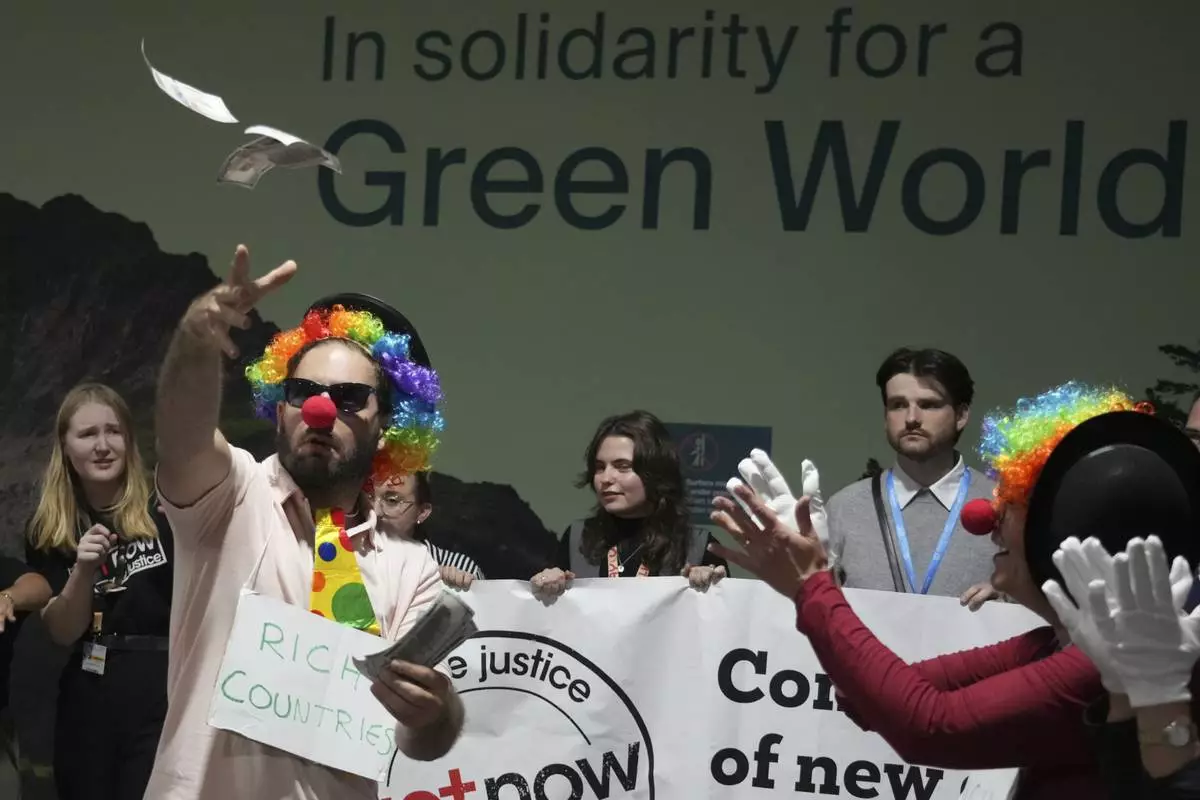
Activists dressed as clowns participate in a demonstration for climate finance at the COP29 U.N. Climate Summit, Friday, Nov. 22, 2024, in Baku, Azerbaijan. (AP Photo/Sergei Grits)
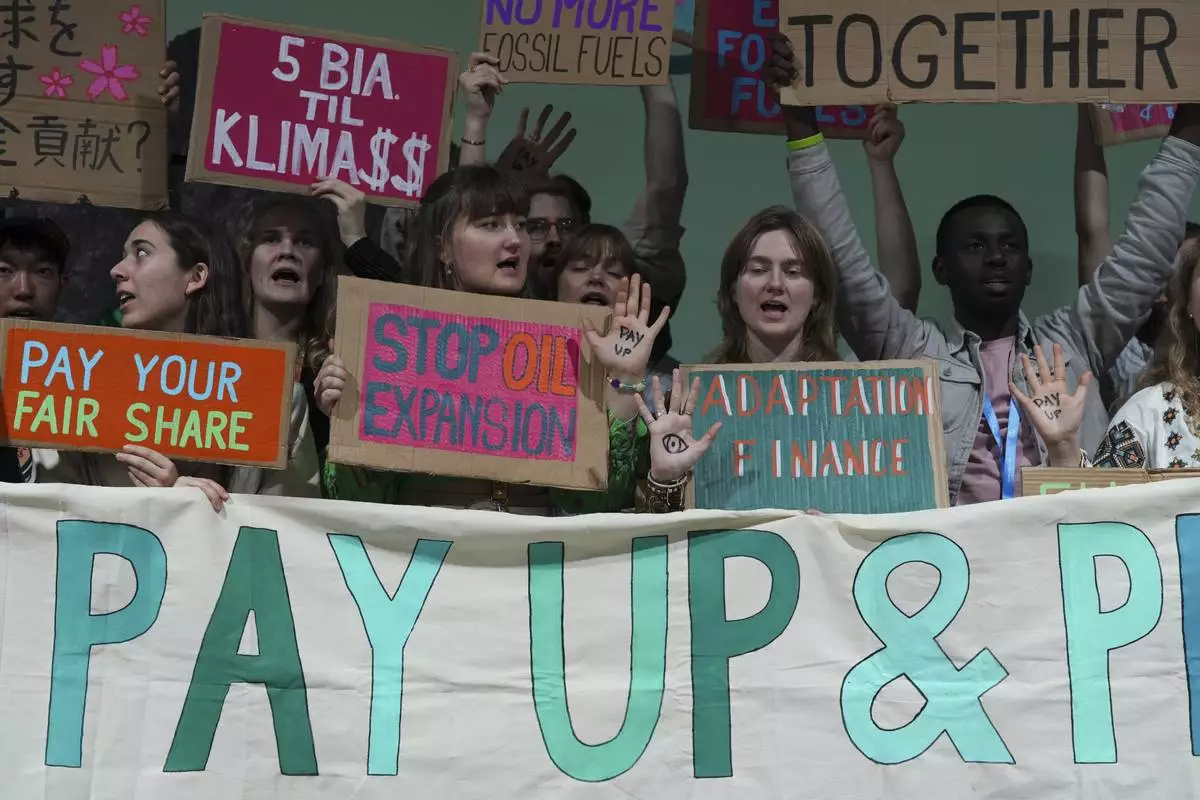
Activists participate in a demonstration for climate finance at the COP29 U.N. Climate Summit, Friday, Nov. 22, 2024, in Baku, Azerbaijan. (AP Photo/Peter Dejong)
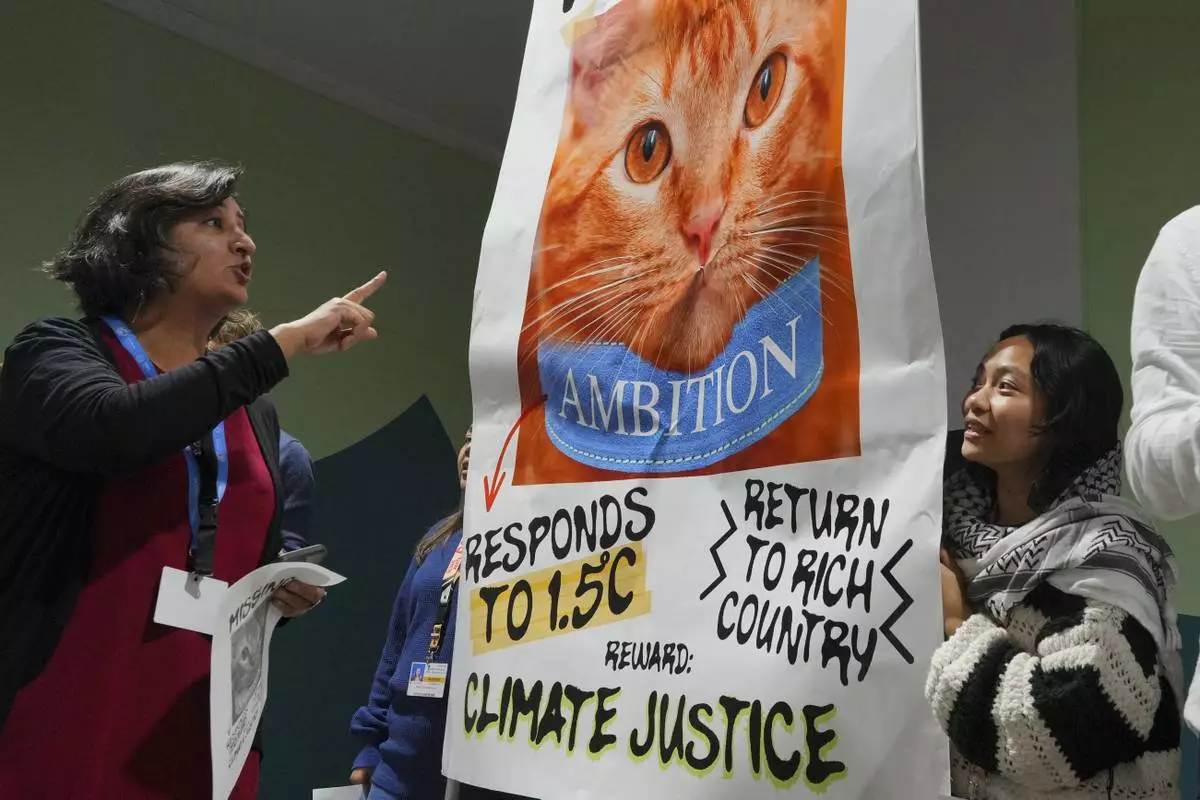
Activists participate in a demonstration for climate justice at the COP29 U.N. Climate Summit, Friday, Nov. 22, 2024, in Baku, Azerbaijan. (AP Photo/Peter Dejong)
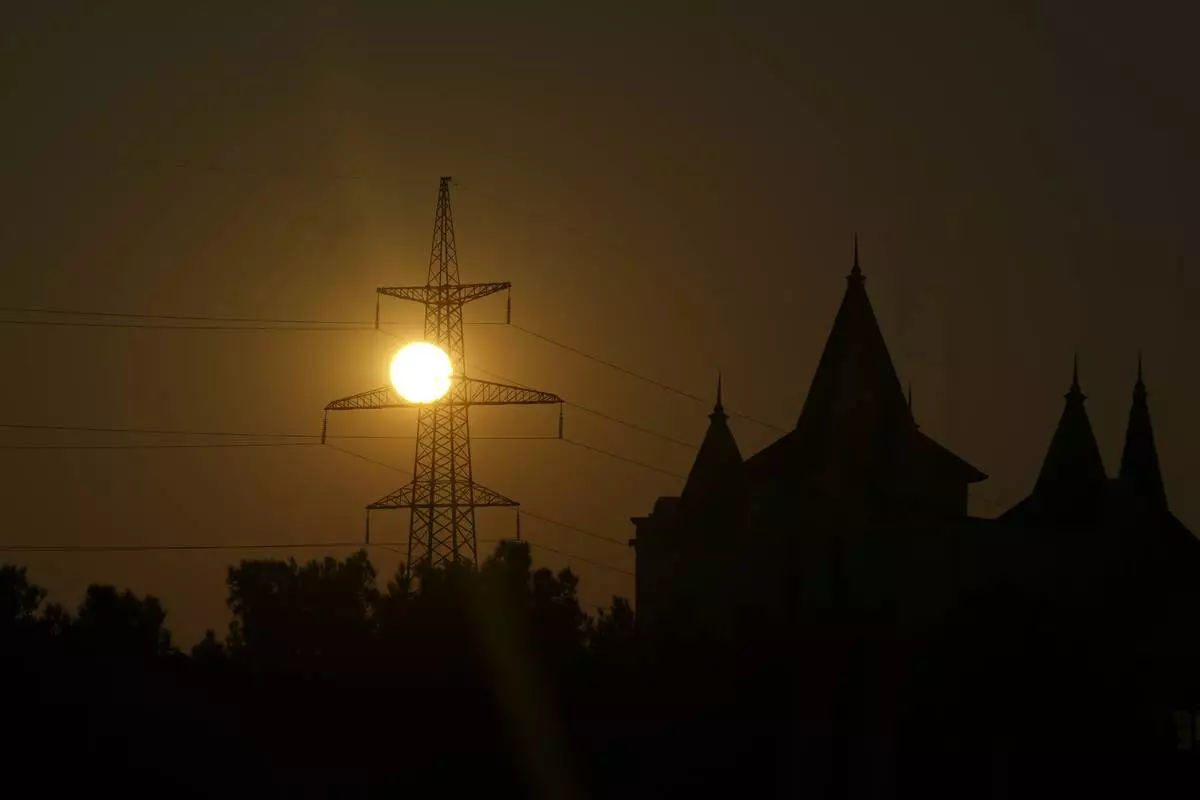
The sun rises visible behind a transmission tower during the COP29 U.N. Climate Summit, Friday, Nov. 22, 2024, in Baku, Azerbaijan. (AP Photo/Peter Dejong)
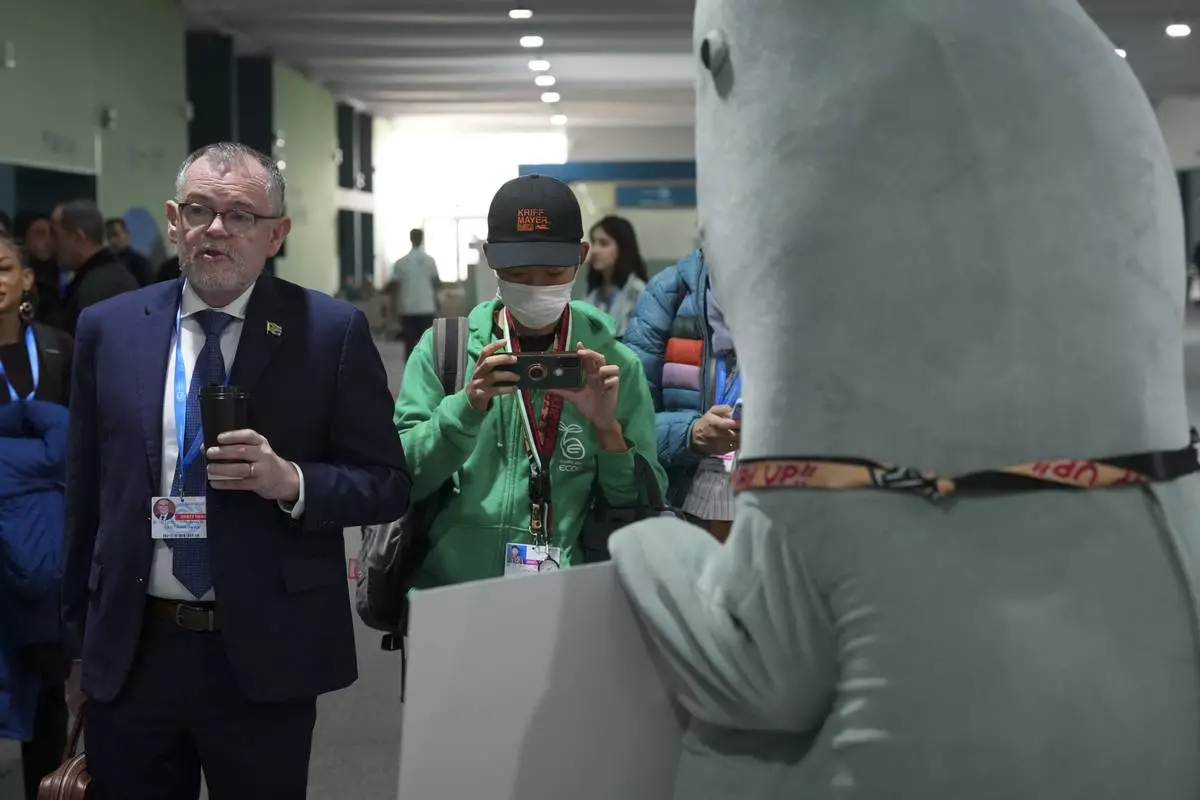
Dion George, South Africa environment minister, left, walks past a person in a dugong costume during the COP29 U.N. Climate Summit, Friday, Nov. 22, 2024, in Baku, Azerbaijan. (AP Photo/Peter Dejong)



